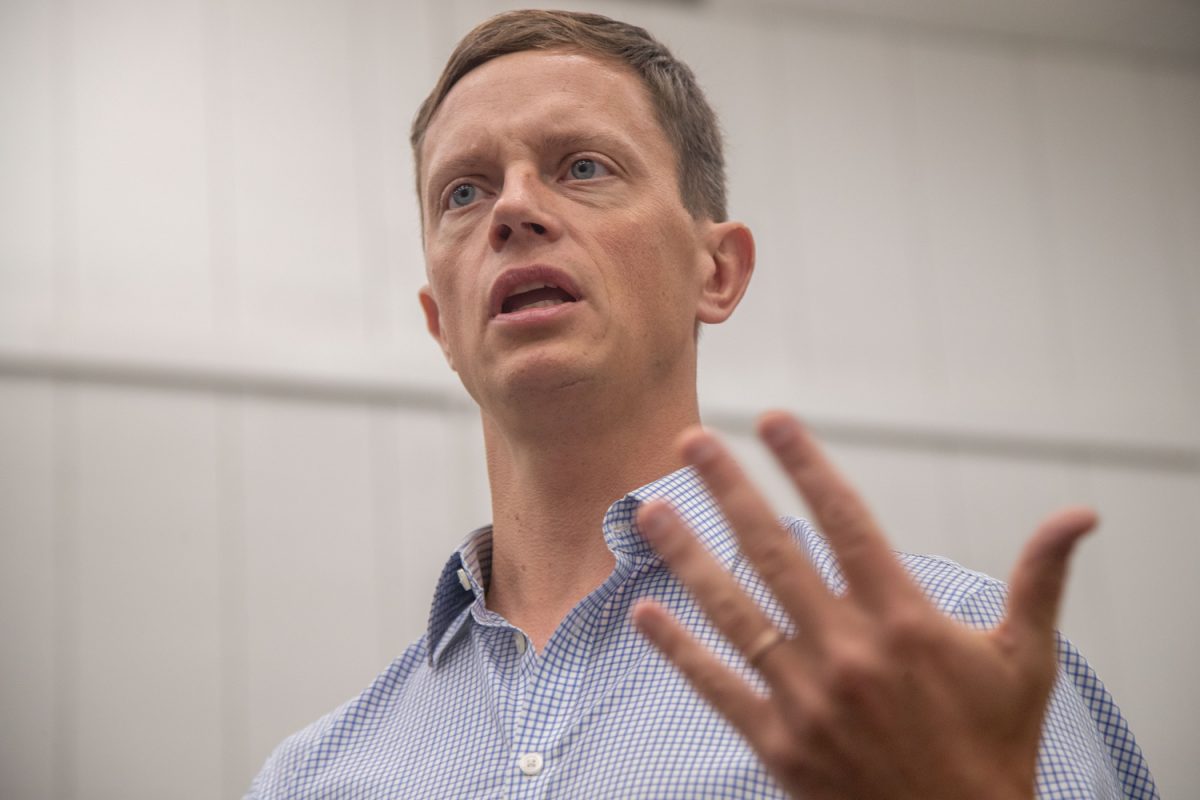Iowans in wealthy areas pay less in property taxes than those in less financially stable counties in Iowa, according to a property tax levy report released on Tuesday by Iowa State Auditor Rob Sand.
The first-of-its-kind report indicates that Iowans in wealthier areas are subjected to less property tax burden than those in lower-income areas. Sand said this has been speculated but was not proven until the release of the report.
The report comes almost a year after Iowa Gov. Kim Reynolds signed a $100 million property tax cut into law in May, which capped levy rates for cities and counties. The law aimed to reduce the amount of property tax Iowans pay on the assessed value of their houses, farms, or businesses in the future.
Tuesday’s report found Iowans earning larger incomes pay less in property taxes. Every $1,000 increase in an area’s median household income is associated with a 10.6 cent decline in the overall property tax rate, according to the report.
Sand defined this as a “regressive tax,” meaning lower-income Iowans pay a higher property tax rate than their wealthy counterparts and that reviews of 2014 and 2019 showed similar levels of regressiveness.
Sand said the office is not making any proposals with the information they found, but the report is important for policymakers to consider as they’re looking at potential property tax reforms.
“I think this is important information that we have dug into here because obviously, property taxes are something that the legislature is looking at regularly,” Sand said at the press conference. “They’re changing the formula, changing the rules around them. And yet no one has actually addressed this question. No one has actually answered this question before, which I think is an important one.”
With 4,100 property tax districts across the state of Iowa, the report showed that some of the lowest levies are located in Northwest and West-Central Iowa. Higher rates are found in the Central and Southern areas of the state and in most large and mid-sized cities.
Areas around Iowa City paid as much as $37.5 to $40.00 per $1,000 of assessed valuation, according to the report, as high as $4.90 higher than the state’s average property tax levy of $35.10.
“I think property taxes are a topic of conversation every year in the legislature, all Iowans who own property are paying them,” Sand said. “I think the more information that we can provide to inform people about where their money’s going, who’s paying what, and how the whole system works, is us doing our job.”
The report follows Reynolds’s announcement to expedite a cut of the individual income tax during her Condition of the State address. Her proposed legislation would reduce the individual income tax to a flat rate of 3.5 percent by 2025.
Supported by Iowa Republican lawmakers, Reynolds plans to eliminate the state’s income tax by the end of her term in 2027.



